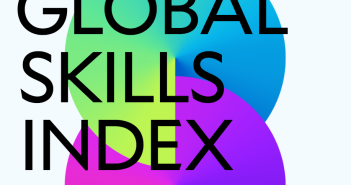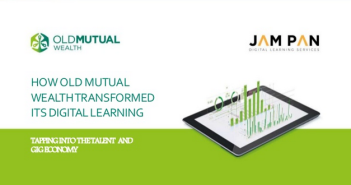
Create Alexa Experiences for Your Organization
Editor’s note: Amazon has provided a way for organisations to design Alexa experiences. No need for code either. These blueprints show you how to do it.

Editor’s note: Amazon has provided a way for organisations to design Alexa experiences. No need for code either. These blueprints show you how to do it.

Editor’s note: Coffee chain Starbucks is offering employees in the UK who do not hold a degree the opportunity to study for an undergraduate degree online. This at a time when there is a fear Brexit will lead to staff shortages. An interesting move to recruit and retain candidates.

Editor’s note: In this interview, Kartik Hosanagar, author of A Human’s Guide to Machine Intelligence: How Algorithms Are Shaping Our Lives and How We Can Stay in Control, demystifies machine intelligence and looks at some of the things we need to consider to effectively harness the technology.

Editor’s note: David Perring from learning analysts Fosway Group cuts through the hype that surrounds the term ‘learning experience platform’.

Editor’s note: Massive open online course provider Coursera has drawn out insights from the millions of people who use the platform to show which countries are strongest on certain skills. The data provides some clues on where in the world to find people with specific in demand skills.

Editor’s note: This analysis of LinkedIn Learning’s latest research throws up many reasons to be cheerful about digital learning. It also features an interesting slide on the benefits of learning more (called heavy learners on the slide) versus ‘light’ learners. Heavy learners, for example, are 21% more likely to feel confident in their work versus light learners as well as 47% less likely to be stressed at work.

Editor’s note: In this short video, Dr Christian Jarrett, author of The Great Myths, explains why brain myths are so appealing and how we can overcome them.

Editor’s note: This slide deck looks at how financial services company Old Mutual Wealth has re-engineered its L&D strategy using freelance marketplace Jam Pan. It provides a glimpse of new ways in which L&D teams are sourcing and delivering digital resources.

Editor’s note: Cathy Moore provides a some suggestions on how to put a stop to receiving training request forms from the business and instead turn them into what she calls a ‘development request’. Some great tips here.

Editor’s note: This article provides some highlights from LinkedIn Learning’s latest study into learning trends based on the responses of 1,200 L&D professionals. More budget and a shift to online seem like the main trends as is the role of managers to enable learning. Is this news? Perhaps a good reminder of what peers are working on.`

Editor’s Note: This is a great, free resource from Microsoft. The technology company has recently launched a free access, online business school for artificial intelligence. There are a range of courses to help you get up to speed with building an AI culture in your organisation.

Editor’s note: In this short talk, journalist Paul Mason provides the big picture context for automation and the future of work – this is more about moral philosophy than AI.

Editor’s note: Donald Clark challenges the idea of learning experience design and that the brain needs more media rich experiences to navigate. Learning science tells us that that is not what is required. Less is more, he argues.

Editor’s note: This short article is an accessible way into the learning insights from the research carried out by Robert Bjork, the director of the UCLA Learning and Forgetting Lab.

Editor’s note: This article explains John Sweller’s cognitive load theory and its implications for learning design. Applying this theory helps free up working memory in order to facilitate changes in long term memory.
